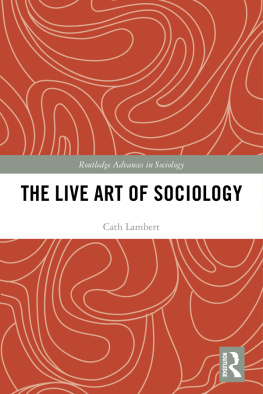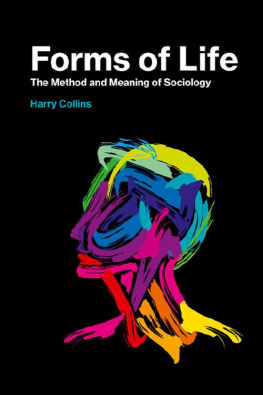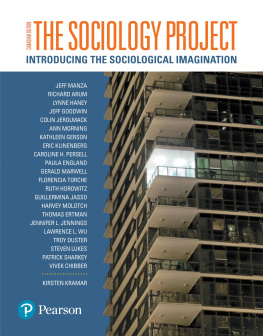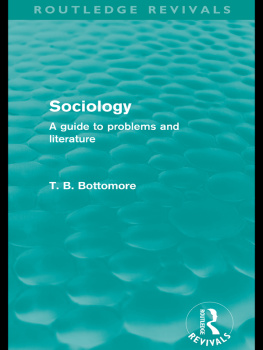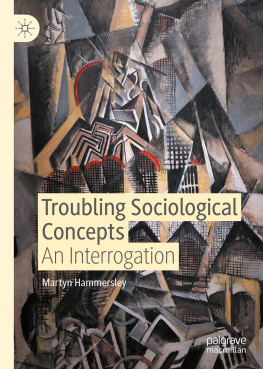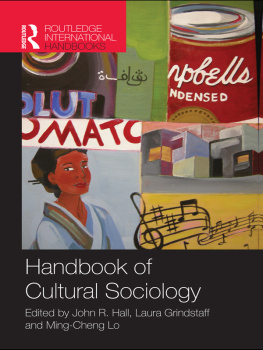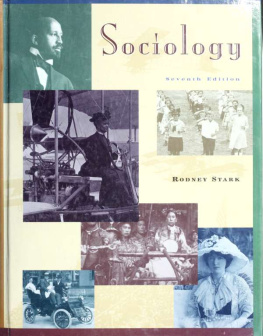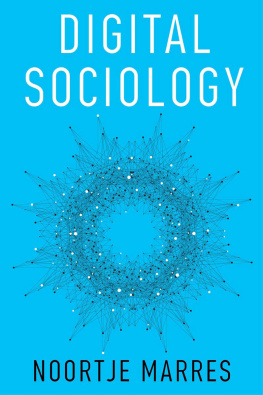
MEANING AND METHOD
THE YALE CULTURAL SOCIOLOGY SERIES
Jeffrey C. Alexander and Ron Eyerman, Series Editors
Triumph and Trauma, by Bernhard Giesen (2004)
Myth, Meaning, and Performance: Toward a New Cultural Sociology of the Arts, edited by Ron Eyerman and Lisa McCormick (2006)
American Society: A Theory of Societal Community,
by Talcott Parsons, edited and introduced
by Giuseppe Sciortino (2006)
The Easternization of the West, by Colin Campbell (2007)
Do We Need Religion? On the Experience of Self-Transcendence,
by Hans Joas (2007)
Changing Men, Transforming Culture: Inside the Mens Movement,
by Eric Magnuson (2007)
A Contemporary Introduction to Sociology: Culture and Society in
Transition, by Jeffrey C. Alexander and Kenneth Thompson (2008)
Culture, Society, and Democracy: The Interpretive Approach,
edited by Isaac Reed and Jeffrey C. Alexander (2007)
Inside Jihadism: Understanding Jihadi Movements Worldwide,
by Farhad Khosrokhavar (2008)
Staging Solidarity: Truth and Reconciliation in a New South Africa,
by Tanya Goodman (2208)
Meaning and Method: The Cultural Approach to Sociology,
edited by Isaac Reed and Jeffrey C. Alexander (2008)
Performative Democracy,
by Elzbieta Matynia (2009)
Injustice at Work,
by Franois Dubet (2009)
MEANING AND METHOD
THE CULTURAL APPROACH TO SOCIOLOGY
Edited by
Isaac Reed and
Jeffrey C. Alexander
First published 2009 by Paradigm
Publishers Published 2016 by Routledge
2 Park Square, Milton Park, Abingdon, Oxon OX14 4RN
711 Third Avenue, New York, NY 10017, USA
Routledge is an imprint of the Taylor & Francis Group, an informa business
Copyright 2009, Taylor & Francis.
All rights reserved. No part of this book may be reprinted or reproduced or utilised in any form or by any electronic, mechanical, or other means, now known or hereafter invented, including photocopying and recording, or in any information storage or retrieval system, without permission in writing from the publishers.
Notice:
Product or corporate names may be trademarks or registered trademarks, and are used only for identification and explanation without intent to infringe.
Library of Congress Cataloging-in-Publication Data
Meaning and method : the cultural approach to sociology / edited by Isaac Reed and Jeffrey C. Alexander.
p. cm. (Yale cultural sociology series)
Includes bibliographical references and index.
ISBN 978-1-59451-569-9 (hc)
1. SociologyPhilosophy. 2. Culture. I. Reed, Isaac (Isaac Ariail) II. Alexander, Jeffrey C., 1947
HM585.M425 2008
306.01dc22
2008018828
Designed and Typeset by Straight Creek Bookmakers.
ISBN 13: 978-1-59451-569-9 (hbk)
ISBN 13: 978-1-59451-570-5 (pbk)
Contents
Isaac Reed
Lyn Spillman
Jerry Goodstein, Mary Blair-Loy, and Amy S. Wharton
Kenneth Thompson
Georgina Born
Richard Biernacki
John H. Evans
Richard Biernacki
John H. Evans
Isaac Reed
Culture is increasingly important to American sociology, can we specify what it means that so many sociologists study culture? A lot of work has been done to define cultural history and a lot of postmodern ink spilled over the epistemic status of cultural anthropology; this book is intended to reflexively comprehend what is going on in cultural sociology. It is about, in particular, how the consideration of cultureand its accompanying term, meaningreforms and reframes the nature of sociological inquiry as a whole. It is thus concerned with method in both the broad, conceptual sense of the concepts that define and frame inquiry, and in the technical sense of what sociologists who study culture do in their everyday research practices. In this introductory chapter, I want to set out a schema for thinking about culture in sociology that puts into perspective the purpose and scope of the chapters that follow.
To begin with, consider a very intuitive distinction concerning how culture can be important to sociology: as object and as approach. Culture as an object would approximate what people mean when they refer to high and low culture, and thus would include the sociology of art, literature, and televisionand perhaps also religion, science, and other forms of knowledge. The study of what has been thought and said, and of the produced cultural artifacts of this or that society, would take culture as its object and apply well-known sociological methods and theories to this object.
Culture as approach would refer to how standard sociological objects of inquiry (e.g., race, class, gender) are researched from a cultural perspectivethat is, examined for their discursive or symbolic elements or aspects. Here all of sociology is fair game for the sociologist who does culture, as the symbolic dimension of social life becomes an essential part of the description of social facts and the explanation of social action.
To specify this distinction in a more rigorous manner, I would like to make a distinction between the context of investigation and the context of explanation. The context of investigation refers to the social and cultural environments of operation of the sociological investigator herself. The context of explanation refers to the social and cultural environments of the actors who are studied by the investigatorthe subjects and social phenomena that demand explanation. It is with full intention that I use the vague term context here, because the very specification of the nature of each of these contextsthrough theory, research, or the combination of the twois exactly what I am interested in exploring as a way to think about the role of culture in sociology.
According to this schema, what we mean when we talk about culture as an object for sociology is that we are expanding the context of explanation to include many more social facts to be described and more social actions to be explained (Which movies get made, how and why? Which movies get watched, how and why?). This is a strictly concrete and empirical expansion. The tools that we use to investigate these new objects may of necessity go through some changes, particularly at the most technical level, but in a larger sense the conceptual resources of the sociologist herself are merely reapplied and refocused. In other words, the context of investigation remains largely unchanged and unchallenged.
When we discuss culture as an approach, something slightly more complex is implied. Here, too, we can start with the context of explanation. The sociologist who practices a cultural approach to her object of study would argue that, in merely adding the production and consumption of cultural artifacts to the context of explanation, the sociologist commits the fallacy of misplaced concreteness. Certainly, it is useful and important to study culture in this sense, but to work theoretically as if one can point out this phenomenon as cultural and this other one as political or economicor even socialis to labor under an illusion. It is rather the case that most social actions that demand explanation have a cultural aspect. What the cultural turn implies, in this case, is that the context of explanation is seen to have a


